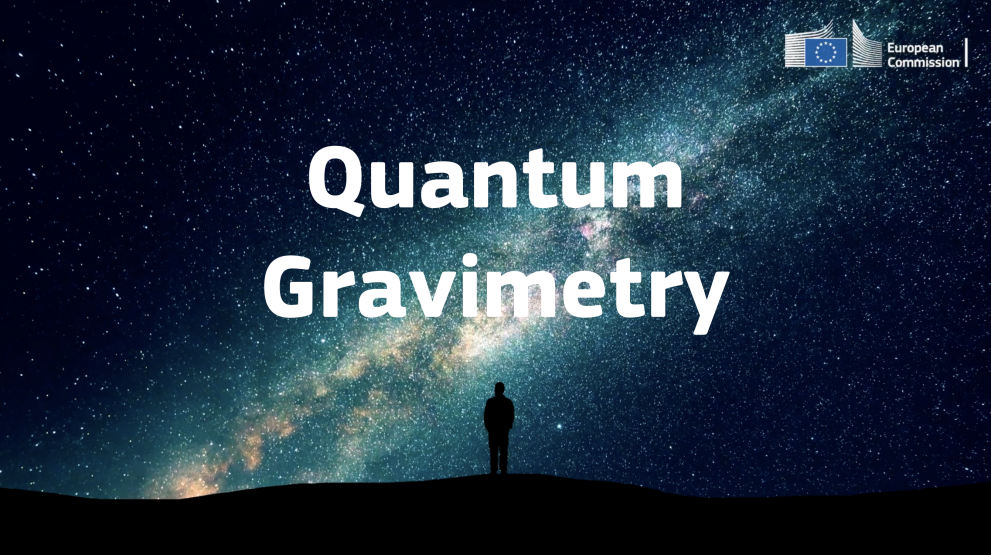
The quantum innovation is being applied in many fields of science, from secure communication, to computing, to Earth observation. By exploiting the properties of cold atoms, it is possible to create an instrument that can be used for measuring the Earth gravity, in a very stable manner, and with unprecedented sensitivity. This measurement is fundamental to further understand the changes that our planet is experiencing; it will be possible to monitor the evolution of the oceanic currents and atmospheric events, the fresh water cycle, and even study the underground changes tied to seismology and vulcanology.
|
|
The European Commission is preparing the grounds for the deployment of a quantum space gravimetry pathfinder mission, which is a first flight demonstration of the instrument pioneering technology to characterise its performance. This will prepare for a future full scale Earth observation mission.
Funded by Horizon Europe, HaDEA is managing a key portfolio of projects that prepare the implementation of this groundbreaking mission.
CARIOQA Phase A kicks off
The CARIOQA-PHA (Phase A) project is developing the first phase of the pathfinder space mission. On 16 January 2024, the project partners (CNES, German Aerospace Center (DLR), Airbus Defence & Space, GMV and FORTH/PRAXI) officially kicked-off the Phase A project. This marks a key milestone of this demonstration mission to test in space a quantum sensor capable of measuring accelerations using cold atoms.
In parallel, the CARIOQA-PMP project is developing the core of the quantum instrument.
To be ready to deploy a future constellation of satellites to continuously measure the change in gravity, the performance of the space-rated quantum accelerometers must first be tested. This is a colossal challenge given the requirements of space flight. To this end, the European Commission has the challenging target of flying this pathfinder before the end of this decade, by 2030.
Phase B study open for submissions
As part of the currently open Horizon Europe Space Research call 2024, a dedicated topic is targeting the selection of a proposal for the succeeding Phase B study and associated technology maturation.
Background
EU Space Research aims to foster a cost-effective, competitive, and innovative space industry and research community. Under Horizon Europe Cluster 4 – Space (Destination 5), HaDEA is funding projects that prepare future evolutions of the EU Space Programme components, foster the EU space sector’s competitiveness, reinforce its independent capacity to access space, and secure its autonomy of supply for critical technologies.
With a total budget of €46.3 million, the Horizon Europe Space Research call 2024 is currently open and offers a variety of collaboration opportunities for the space community.
Relevant links
EU Space Research - Quantum Technologies
CNES Press Release - European CARIOQA project kicks off A quantum-sensing revolution in the making
Details
- Publication date
- 31 January 2024
- Author
- European Health and Digital Executive Agency
- Programme Sector
- Space
- Programme
- Horizon Europe
- Horizon Europe Cluster 4: Space
- Tags
- EUFunded
- Innovation
- Proposals
